
Jawaharlal Nehru was an Indian anti-colonial nationalist, secular humanist, social democrat, and author who was a central figure in India during the middle of the 20th century. Nehru was a principal leader of the Indian nationalist movement in the 1930s and 1940s. Upon India's independence in 1947, he served as the country's first prime minister for 16 years. Nehru promoted parliamentary democracy, secularism, and science and technology during the 1950s, powerfully influencing India's arc as a modern nation. In international affairs, he steered India clear of the two blocs of the Cold War. A well-regarded author, his books written in prison, such as Letters from a Father to His Daughter (1929), An Autobiography (1936) and The Discovery of India (1946), have been read around the world. The honorific Pandit has been commonly applied before his name.
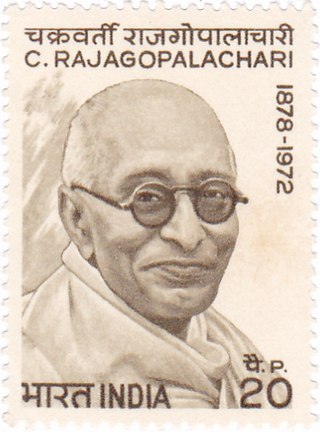
Chakravarti Rajagopalachari BR, popularly known as Rajaji or C.R., also known as Mootharignar Rajaji, was an Indian statesman, writer, lawyer, and independence activist. Rajagopalachari was the last Governor-General of India, as when India became a republic in 1950 the office was abolished. He was also the only Indian-born Governor-General, as all previous holders of the post were British nationals. He also served as leader of the Indian National Congress, Premier of the Madras Presidency, Governor of West Bengal, Minister for Home Affairs of the Indian Union and Chief Minister of Madras state. Rajagopalachari founded the Swatantra Party and was one of the first recipients of India's highest civilian award, the Bharat Ratna. He vehemently opposed the use of nuclear weapons and was a proponent of world peace and disarmament. During his lifetime, he also acquired the nickname 'Mango of Salem'.
Madhaviah Krishnan, better known as M. Krishnan, was a pioneering Indian wildlife photographer, writer and naturalist.

The Swatantra Party was an Indian classical liberal political party that existed from 1959 to 1974. It was founded by C. Rajagopalachari in reaction to what he felt was the Jawaharlal Nehru-dominated Indian National Congress's increasingly socialist and statist outlook.

Ramachandra "Ram" Guha is an Indian historian, environmentalist, writer and public intellectual whose research interests include social, political, contemporary, environmental and cricket history, and the field of economics. He is an important authority on the history of modern India.
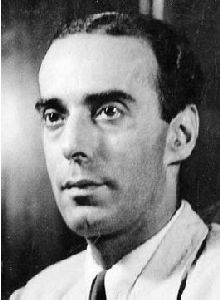
Minocher Rustom "Minoo" Masani was an Indian politician, a leading figure of the erstwhile Swatantra Party. He was a three-time Member of Parliament, representing Gujarat's Rajkot constituency in the second, third and fourth Lok Sabha. A Parsi, he was among the founders of the Indian Liberal Group think tank that promoted classical liberalism.
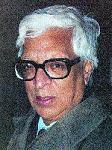
Sarvepalli Gopal was a well-known Indian historian. He was the son of Sarvepalli Radhakrishnan, the first Vice-President and the second President of India. He was the author of the Radhakrishnan: A Biography and Jawaharlal Nehru: A Biography.

John Francis Ashley Erskine, Lord Erskine GCSI, GCIE was a British soldier, Conservative Party politician and administrator who served as Member of Parliament (MP) for Weston-super-Mare and Brighton. Erskine also served as the Governor of Madras Presidency from 1934 to 1940.
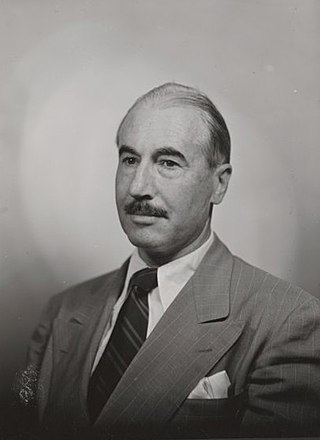
Sir Walter Russell Crocker was an Australian diplomat, writer and war veteran.

An Autobiography, also known as Toward Freedom (1936), is an autobiographical book written by Jawaharlal Nehru while he was in prison between June 1934 and February 1935, and before he became the first Prime Minister of India.

General elections were held in India between 25 October 1951 and 21 February 1952. India attained independence on 15 August 1947 and set up an Election Commission two years later. In March 1950, Sukumar Sen was appointed as the first Chief Election Commissioner. A month later, the Indian Parliament passed the Representation of the People Act which provided the conduct for election for the Houses of Parliament and the Houses of Legislature for each state. It was conducted under the provisions of the Indian Constitution, which was adopted on 26 November 1949. Elections to most of the state legislatures took place simultaneously.

Sukumar Sen was an Indian civil servant who was the 1st Chief Election Commissioner of India, serving from 21 March 1950 to 19 December 1958. Under his leadership, the Election Commission successfully administered and oversaw independent India's first two general elections, in 1951–52 and in 1957. He also served as first Chief Election Commissioner in Sudan in 1953.

India After Gandhi: The History of the World's Largest Democracy is a non-fiction book by Indian historian Ramachandra Guha. First published by HarperCollins in August 2007.
Dinanath Gopal Tendulkar (1909–1972) was an Indian writer and documentary film maker. He is most well known as the author of an eight-volume biography of Mahatma Gandhi, titled Mahatma: Life of Mohandas Karamchand Gandhi. He was also a close associate of Vithalbhai Jhaveri and collaborated for the documentary film, Mahatma: Life of Gandhi, 1869–1948. He died on Monday, June 12, 1972.

The Prime Ministers Museum and Library Society previously known as the Nehru Museum and Library Society is a museum and library in New Delhi, India, which aims to preserve and reconstruct the history of the Indian independence movement. Housed within the Teen Murti House complex, it is an autonomous institution under the Indian Ministry of Culture, and was founded in 1964 after the death of India's first prime minister, Jawaharlal Nehru. It aims to foster academic research on modern and contemporary history. Today, the Nehru Memorial Library is the world's leading resource centre on India's first prime minister. Its archives contain the bulk of Mahatma Gandhi's writings, as well as private papers of Swami Sahajanand Saraswati, C. Rajagopalachari, B. C. Roy, Jayaprakash Narayan, Charan Singh, Sarojini Naidu and Rajkumari Amrit Kaur. In March 2010, it launched a digitization project of its archives, and by June 2011, 867,000 pages of manuscripts and 29,807 photographs had been scanned and 500,000 pages had been uploaded on the digital library website. Amongst noted publications of the NMML are Selected Works of Jawaharlal Nehru, Man of Destiny by Ruskin Bond, and Nehru Anthology (1980).

After power transformation, on 15 August 1947, Jawaharlal Nehru assumed office as the first Prime Minister of India and chose fifteen ministers to form the First Nehru ministry.
Des Raj Goyal (1929-2013), also known as Desraj Goyal or D. R. Goyal, is an Indian journalist, academic and a well-known author of books on secularism and communalism. Having been a member of the Hindu nationalist organisation Rashtriya Swayamsevak Sangh (RSS) in his younger days, he wrote a seminal book on the organisation in 1979, which is widely cited in academic works.
Children's Day is celebrated across India to raise awareness about the rights, education, and welfare of children. It is celebrated on 14 November every year on the birthday of the first prime minister of India Pandit Jawaharlal Nehru, who was known to have been fond of children. On this day, many educational and motivational programs for children are held all over India. Some schools in India give leave to their students on Children's Day while private schools organize a fair for their students.

The Tribal World of Verrier Elwin is an autobiography of anthropologist Verrier Elwin published by Oxford University Press. The book was published posthumously in May 1964, three months after the death of Elwin. It was awarded the Sahitya Akademi Award in 1965.
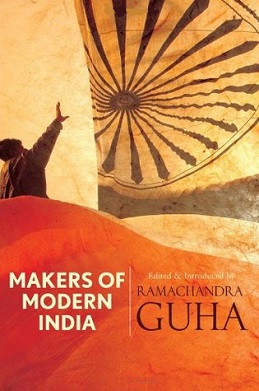
Makers of Modern India is a non-fiction book written by Indian historian-scholar Ramachandra Guha and published by Penguin India in 2010. The book features profiles of selected personalities that laid the foundation of modern India: Ram Mohan Roy, Syed Ahmad Khan, Khuda Bakhsh, Jotirao Phule, Gopal Krishna Gokhale, Bal Gangadhar Tilak, Tarabai Shinde, Mahatma Gandhi, Rabindranath Tagore, B. R. Ambedkar, Mohammad Ali Jinnah, Periyar, Kamala Devi Chattopadhyay, Jawaharlal Nehru, M. S. Golwalkar, Rammanohar Lohia, Jayaprakash Narayan, C. Rajagopalachari, Verrier Elwin, and Hamid Dalwai.
















